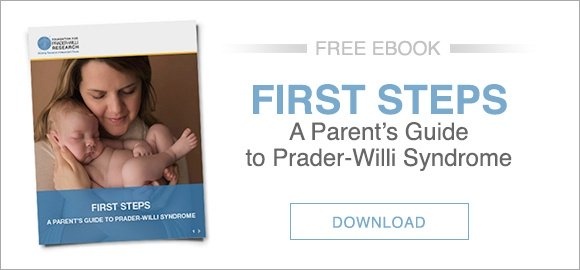An FPWR blog in September 2009 highlighted research into the potential role of central adrenal insufficiency (CAI) in cases of sudden and unexpected death in PWS patients. Some recent studies provide more information on the prevalence of CAI in PWS and demonstrate that continued research is warranted.
CAI is a condition that ultimately results in decreased production of the hormone cortisol. Cortisol plays critical roles in maintaining normal blood sugar levels and importantly, helps the body respond appropriately to stresses such as fevers, acute illness and injuries. As a result, CAI may not cause any problems when a person is healthy, but can be life threatening in times of stress, illness, or when under anesthesia. With respect to PWS, CAI has been associated with sudden and unexpected death, hypotension under anesthesia, and sleep related breathing disorders [de Lind van Wijngaarden 2009, Barbara 2012].
CAI was first suggested to play a role in PWS-associated deaths in 2004 [Stevenson] and a higher than normal prevalence of CIA was first confirmed in PWS patients in 2008 [de Lind van Wijngaarden]. However, there remains some disagreement about just how common it is. When first described, the incidence rate of CAI in PWS was reported to be 60%. However, recent studies out of Italy and Australia suggest that the prevalence of CAI is much lower, in the range of <5-15% of the PWS population [Nyunt 2010, Corrias 2012, Grungi 2013]. CAI has now been detected in PWS during childhood, adolescence and adulthood, suggesting it is not an age-specific finding. However, it remains to be determined if those with CAI in childhood are also likely to have it as adults, or if normal CAI test result in childhood means that an adult with PWS is unlikely to have CAI. Finally, differences between genetic subtypes are not yet clear, although one report suggests that when present, the magnitude of CAI may be greater in cases of PWS by deletion versus UPD [Corrias 2012].
One reason for the broad range of reported incidence is likely the varying types of testing methods used to detect CAI. These include measurement of morning (“8 am”) cortisol level, metyrapone testing, low versus standard dose synacthen testing, insulin tolerance testing, and glucagon stimulation testing. All of these tests have risks and benefits that result in different endocrinologists preferring different types of testing, which means that CAI in PWS has not been validated between different institutions in a consistent manner.
Although the precise incidence rate of CAI in PWS may not yet be accurately described, CIA should definitely be on the radar of PWS patients and their caregivers. What should you be on the lookout for? Lower than normal baseline cortisol levels could be an indication that further testing is warranted. Low cortisol levels during illness, especially with fever, a history of hypoglycemia or hypoglycemia during illness, and low cortisol levels during induction of anesthesia all are concerning findings that an individual may have CAI. For all individuals with PWS, the primary care physician should be aware of the increased prevalence of CAI in PWS, the endocrinologist should test for it, and the medical team should be informed of the possibility of CAI prior to surgery and/or during times of acute illness. The good news is that if CAI is diagnosed, steroid treatment during times of physiological stress (illness, surgery) can be a simple and effective therapy [Barbara].
~ Jessica Bohonowych & Theresa Strong, with thanks for valuable input by Dr. Jennifer Miller








